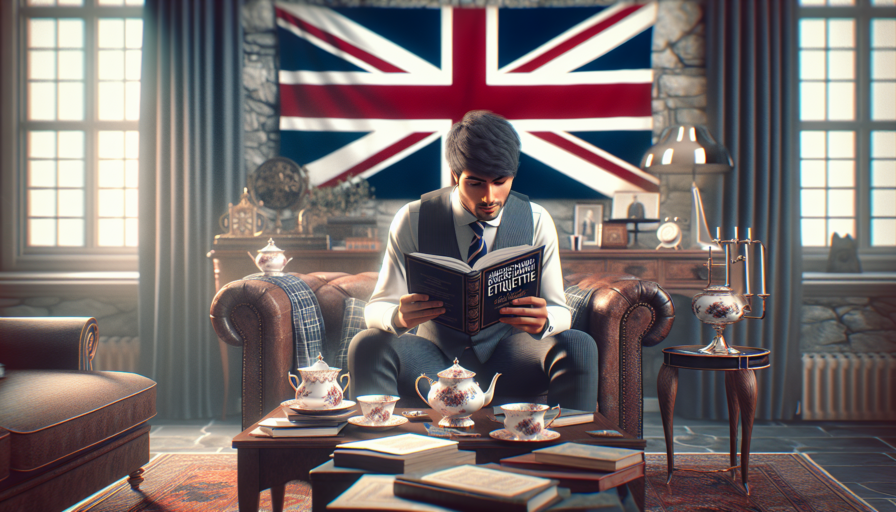
Contents
British Etiquette refers to the traditional norms and behaviors that govern social interactions in the United Kingdom. These unwritten rules encompass politeness, respect, and consideration for others, and play a crucial role in everyday communication. As we navigate the intricacies of British culture, understanding British Etiquette becomes essential for anyone looking to fit in and communicate effectively.
For English learners, grasping the nuances of British Etiquette not only enhances language skills but also enriches cultural comprehension. Here are some key aspects to consider:
Moreover, the importance of British Etiquette extends beyond mere politeness. It fosters deeper relationships and effective networking opportunities. As we immerse ourselves in the language and culture, practicing these social rules not only boosts our confidence but also reflects our ability to communicate within the rich tapestry of British society.
At Britannia School, we recognize the importance of understanding the key aspects of British etiquette as they play a vital role in our daily interactions. Whether we are meeting someone for the first time or attending a formal event, adhering to these social norms can enhance our communication and overall experience. Here are some essential tips that we should always keep in mind:
Understanding these key aspects of British etiquette not only helps us navigate social scenarios with ease but also fosters a sense of community and respect among us. By practicing these tips routinely, we can ensure our interactions are pleasant and culturally appropriate.
When navigating the intricacies of British culture, we often encounter a variety of customs and etiquette that may differ significantly from what we are accustomed to. As non-natives, we can inadvertently make common British etiquette mistakes that could lead to misunderstandings or awkward situations. Understanding these pitfalls is essential for making a positive impression and integrating into British society.
Many of us may underestimate the importance of certain pleasantries, such as saying “please” and “thank you.” Neglecting these simple terms can be viewed as rude in the UK. Additionally, we should be aware of the significance of personal space; standing too close to someone during conversation can make them uncomfortable. Below is a list of common British etiquette mistakes we should aim to avoid:
Moreover, we often overlook the necessity of proper table manners. For instance, we should avoid resting our elbows on the table during meals and remember to keep our hands visible (but not our elbows) while dining. By being mindful of these aspects of common British etiquette mistakes, we can enhance our understanding and appreciation of British culture, leading to more successful interactions.
In British culture, politeness is not just a social nicety; it is a fundamental aspect of daily interactions that shapes our relationships and public life. When we engage with others, we often employ certain verbal cues and behaviors that reflect our understanding of this cultural norm. For instance, using phrases such as “please” and “thank you” is essential, and we should remember to always greet others with a friendly “hello” or “good morning.”
Understanding the nuances of politeness can significantly enhance our social interactions. Here are some key strategies to navigate these encounters:
As we engage with various people in social contexts, employing these principles of politeness fosters an atmosphere of mutual respect. We become more attuned to the subtle signals and cues that dictate appropriate behavior, allowing us to navigate different scenarios with ease. By embracing these etiquette rules, we not only enhance our social experiences but also contribute positively to the community around us.
At Britannia School, we understand that mastering British etiquette can enhance one’s social interactions and facilitate smoother communications. To help improve your understanding and appreciation of British etiquette, we’ve compiled a variety of invaluable resources that cater to both novices and those looking to refine their skills.
By utilizing these resources, we can not only deepen our knowledge of British etiquette but also appreciate the cultural significance behind each custom and tradition. Whether it’s mastering the art of conversation at a formal dinner or understanding the subtleties in body language, we have plenty of tools at our disposal to make the learning process enjoyable and enlightening.